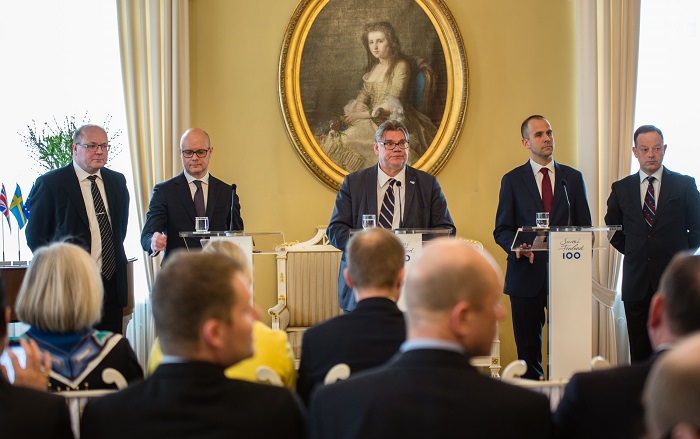MoU signed
Helsinki to host anti-hybrid threat centre
Published : 11 Apr 2017, 23:03
Updated : 12 Apr 2017, 10:17
A memorandum of understanding was signed in Helsinki on Tuesday between nine countries for establishing the European Centre of Excellence for Countering Hybrid Threats, said an official press release.
The signatory states are Finland, Sweden, the United Kingdom, Latvia, Lithuania, Poland, France, Germany, and the United States. Representatives of the European External Action Service and NATO were also present on the occasion.
Finland has been preparing for establishment of the centre with 15 other countries within a very tight timeframe. The remaining countries are expected to sign the memorandum at a ceremony in July after completion of their national decision-making processes.
Other EU and NATO member states may also apply for membership of the centre. The European External Action Service and NATO Secretariat were actively involved in the preparatory activities of the centre and will participate in its operation but will not become members of the centre.
The centre will engage in strategic-level dialogue, research, training and consultations. It will also conduct practical training exercises aiming to improve readiness to counter hybrid threats. The purpose of the centre is to raise awareness of hybrid threats and societies’ vulnerabilities that can be exploited in hybrid operations. The aim is also to help foster the resilience of societies.
The centre will be based in Helsinki and will form a network of experts for the participating countries. The centre will operate under the guidance of a steering board composed of representatives of the member states. The steering board will hold its first meeting in Helsinki on Wednesday. The board will appoint a director for the centre at the meeting.
The annual budget of the centre at the initial phase is around 1.5 million euros. Half of the budget is to be covered by membership fees (around 700,000 euros) and the host country will provide the other half (around 700,000 euros). As the host country, Finland will cover the costs for the premises and telecommunications and, in part, for human resources.


